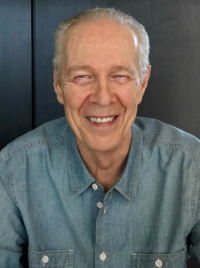.
.
.
.
All Blues: the Story of a Lost Friendship
by Bob Hecht
.
_____
.
…..I have to wonder how many friendships have been forged over mutual love of Miles Davis’ album, Kind of Blue. The one I want to tell you about came to pass in an unlikely setting back during the winter of 1963…
…..Fort Dix, New Jersey was, in my view at least, a surreal kind of place to be at any time; but to be there in Basic Training at the moment when President John F. Kennedy was assassinated was especially bizarre. When the shocking news was announced to us ‘troops’ as we stood frozen in formation and when “Taps” had been played over loud speakers mounted high on telephone poles, the entire base seemed stunned into silence. At least momentarily, that is, before the relentlessly noisy, self-propulsion of the military machine kicked back in after that brief silent stutter, and things once more returned to the Army’s version of normal.
…..That all happened just days after the start of my time at Fort Dix. I had entered the Army, like many, with extreme reluctance and trepidation, and with deep feelings of alienation, not being of a military ‘bent’ shall we say, and viscerally opposed to the growing military involvement in Vietnam. I just wanted to be back in New York bopping around jazz clubs and continuing to do my jazz radio shows… but the U.S. Army had other plans, and rather than be drafted for two years, I had enlisted in the Army Reserves, requiring only six months of active duty. Nonetheless, Basic Training was quite an endurance test for me, physically and psychologically, and honestly, I wasn’t cutting it too well. All that shouting and shooting—some guys ate it up but it was stress city for me.
…..And then a friendship came along out of the blue—or out of the blues really—and things became a little bit more tolerable.
…..Here’s how it all went down…
…..I was sitting on my footlocker in the barracks one night before lights out, polishing my boots and buckles for an inspection in the morning, when I got to talking with a fellow soldier-in-training. He was a tall, handsome black man named John Evans, who hailed from Boston and was a recent English Lit graduate from an Ivy League college. We chatted about some authors we admired but when the subject came around to music, we quickly discovered we had something even bigger in common than literature—a deep love of jazz.
…..But it wasn’t just that we both adored jazz in general; it was also that we both considered Miles Davis’ Kind of Blue to be our all-time favorite jazz record. The album had come out a few years before; I knew virtually every note of it and regarded it as a high-water mark not only in jazz but in the realm of high art in general.
…..Looking back now—given that the album is the best selling jazz album of all time, and still sells over 5,000 copies a month these nearly sixty years after being recorded—I suppose it’s not all that uncommon for two jazz fans to have that record in common as their favorite, but right there at that moment, in the context of our shared daily adversities courtesy of the U.S. Army, our synchrony seemed significant. It felt like a kind of life raft to hold onto in the midst of all that military turbulence and chaos.
…..John and I talked enthusiastically about some of the great tunes on Kind of Blue: including “All Blues,” “So What,” and “Blue in Green,” and about the exquisite beauty of both the ensemble work and the solos. Miles had assembled one of the most perfect teams, with John Coltrane, Cannonball Adderley, Bill Evans, Paul Chambers and Jimmy Cobb; and as pianist Bill Evans wrote in the liner notes for the album, “…you will hear something close to pure spontaneity in these performances.”
…..I told John that just a few days before, shortly after the assassination, I had been talking with my girlfriend on the phone and she had told me that on the day of Kennedy’s death, the big middle-of-the-road radio station in New York City, WNEW—not a jazz station in any way—had played “Blue in Green,” that most poignant, elegiac piece from Davis’ album.
…..As the weeks of basic training dragged grindingly on, John and I developed a nice friendship and talked whenever we had any down time. I was increasingly impressed by what an admirable guy he was—smart, sensitive and charismatic. Soon, his obvious leadership abilities and maturity resulted in his being named a platoon leader.
…..However, some of the other white soldiers in the unit were not so pleased at John’s advancement, nor at my obvious friendship with him. On one occasion, several complained to me that he was promoted when there were white soldiers who were “more qualified.” I also overheard the term “n-lover” used to describe me, and once an ignorant young kid, egged on by several of his pals, actually went with that old racist trope and asked me if I “would want one of them to marry my sister.” (I recall replying with something along the lines of “that would be up to my sister,” and thereafter made a point to avoid that group for the rest of Basic.)
…..An intense experience like being in the Army can forge friendships that can last a lifetime. In fact, John and I remained close during our time together in Basic, and even kept up an active correspondence over the next year and a half. But then something happened…
…..When I completed my active duty at Fort Dix, I got a cheap apartment with my girlfriend in Manhattan (in those days it was still possible to find a cheap pad, especially if you were willing to share it with the colonies of cockroaches, who were, after all, there first.) John, meanwhile, had been shipped off to Fort Hood, Texas, to serve out the remainder of his two-year commitment as a medic.
…..To support myself, I had settled for a job in the public relations department of a monolithic New York life insurance company, writing news releases no one would read about the successes of life insurance salesmen no one cared about.
…..Before the Army I had been a jazz disc jockey for a radio station in Newark, New Jersey—my dream job in many ways—but family pressure had convinced me I should find a more ‘respectable’ profession that also paid an actual living wage. I would not, however, last long in the corporate world.
…..During the same period I bought an alto saxophone and began regular lessons with a saxophonist friend who was a disciple of Lee Konitz, one of my jazz heroes. Starting so late in life, at 22, I had no illusions about becoming a real musician; I just wanted to get a little closer to the music I adored. So, by night I was an aspiring saxophonist—much to the dismay of my neighbors who heard me playing endless scales—and jazz club-hopping hipster… and by day I was a corporate publicity flack.
…..This was not exactly a balanced, healthy lifestyle, to say the least, and after a year or so of seriously burning the candle at both ends, my body surrendered: I came down with a severe case of mononucleosis, resulting in a hospitalization followed by months of recovery at home. My girlfriend and soon-to-be first wife, Lynnette, gradually nursed me back to health.
…..Meanwhile, my correspondence with John had continued during this time and was a real tonic, as we regularly exchanged news and our thoughts on books and music. He had gotten married while serving in Texas, and one day I got a letter saying that he would soon be discharged, and that he and his wife would like to stop in New York for a couple of days to see us on their way north to his family home in Boston.
…..When the time came for their visit, I was between jobs, having quit the insurance company gig after my prolonged illness. Lynnette and I were living in a small, extremely cramped one-bedroom apartment in an old tenement building on the Upper East Side (picture bathtub in the kitchen and toilet down the hall). Regardless, we welcomed John and his wife to our humble pad, and to try to make them as comfortable as possible for their two-night stay we gave them the bedroom, and Lynnette and I crashed on a daybed in the living room.
…..They had made the long drive from Texas in their station wagon, which was packed to the max with their essential belongings: clothes, records, books, etc. When they arrived, John parked outside our building on East 75th Street, and said he hoped it would be okay to leave their voluminous stuff in the car. We discussed it and figured that since everything was carefully covered with blankets and nothing was visible (and also considering that there was no space for any of it in our tiny apartment), that it would likely be all right. After all, this was the Upper East Side…
…..And thankfully, all was well in the morning. We hung out for the day and that evening John and I went downtown and heard Thelonious Monk at the Five Spot. It felt great to see each other again and to dig Monk’s music together.
…..But the next morning John went out to get some coffee, and when he returned to the apartment he looked stricken. In the night, thieves had smashed most of the windows of his station wagon and removed every single one of their possessions—his entire jazz record collection, all their books, everything they owned. With tears welling up in his eyes, he looked at me as if I had totally betrayed him. And I suppose in a sense that was true, as I had been part of an extremely unwise decision. With hardly another word spoken, he and his wife left to return home in their empty and mostly windowless station wagon.
…..I never heard from John again after that terrible day, and had no way to reach him. Even now in the age of digital contacts, I have not been able to locate him.
…..Now and then, especially when I hear something from Kind of Blue, I find myself wondering if John still listens to that music, too… or if he is even alive. To this day, more than fifty years after his fateful visit to New York, I can feel the searing guilt of his awful loss, as well as my own—the loss of a friend whom I admired so much.
………………..The blues are more than a color
………………..They’re a moan of pain
………………..A Taste of strife
………………..And a sad refrain*
.
.
* from the lyrics to Miles Davis’ “All Blues” by Oscar Brown, Jr..
copyright 2018 Bob Hecht
.
Click to listen to “All Blues”.
.
.
_____________
.
.

Bob Hecht’s love of jazz music has, as he writes on his website, The Joys of Jazz, “sustained” him for over seven decades. As a former prominent jazz radio host, writer, producer, and film editor, he is uniquely qualified to tell the abundant history of jazz — and his personal experiences with it — in rich, polished and entertaining podcasts that are wonderfully rewarding.
His work will periodically appear on the pages of Jerry Jazz Musician, for which we are grateful. For complete listings of available programs, and to subscribe to his podcast series, we encourage you to visit his website.





























